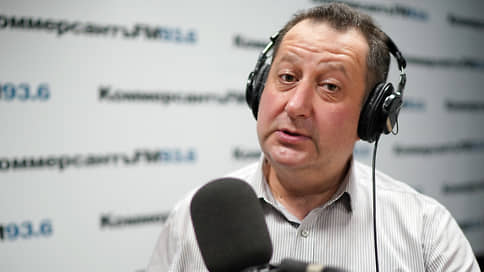“The situation has not changed fundamentally” – Kommersant FM
[ad_1]

The European Union makes decisions on anti-Russian sanctions based on data from dubious sources, for example, Wikipedia, writes Politico. Officials say they simply don’t have enough time to check the facts. EU official Peter Stano noted that the lists are approved by legitimate voting, and he suggested that those who disagree should go to court. Kommersant FM political commentator Dmitry Drize doubts that such publications will change the current state of affairs.
The publication Politico points out that European bureaucrats sometimes make decisions to impose sanctions against Russian citizens on the basis of very dubious data. In addition to Wikipedia, which is now hostile to us, the publication lists advertising materials, articles from news agencies, and even comments from so-called bots as sources of information.
In other words, no one really checks the authenticity of all this. Messrs. experts are content with what they have. Hackwork, in a word. The newspaper refers to the “working documents” of the European Council. Officials, on condition of anonymity, make excuses: we are working at a frantic pace – there is not enough time for everything. Our task is to quickly put pressure on Russia. We are doing a good deed, and this forgives a lot.
The official representative of the EU foreign policy service, Peter Stano, in fact, indirectly admitted this fact. He noted that sources of information are our business. The main thing is that the final decisions are made collectively – based on the general consensus of the participating countries. Those who are blacklisted can always challenge this fact – that’s what fair European courts do. In fact, the corresponding processes are now actively underway.
Through simple logical conclusions, it is not difficult to come to the conclusion that the appearance of such revelations in the Western press at the right time and in the right place opens an additional window of opportunity to win all these courts. An interesting coincidence.
In general, there is such a belief, especially in the post-Soviet space, it is as follows: everything that the press of unfriendly countries writes is the infallible ultimate truth. And the trust in it is not absolutely absolute, but, let’s say, high, like in many other foreign things. However, this is purely for the sake of argument, so let’s not get distracted.
Yes, there is such a sin – there is no clear mechanism for introducing sanctions. Some suffer for no reason, while others, who seem to deserve it, on the contrary, avoid restrictions. It’s doubly unpleasant when you get hurt, but your colleague doesn’t. Of course, not all people are so vicious, but, honestly, this happens. The problem is that it won’t change anything. They will choose their sources more carefully. Moreover, now there is no particular rush. The situation has not fundamentally changed.
In fact, the West does not really understand how to build relations with Russia. He never understood that, and that’s part of the reason for what’s happening now. Where is a good Russian, where is a bad Russian, how to distinguish them – there is nothing but uncertainty. Wikipedia does not give clear answers on this matter. And where would you like to look for all this? Unclear. Maybe just publish a manual, but who can you entrust such work to? Who do we think we are? Good or bad? It’s difficult to answer like this. So wherever you throw it, there’s a wedge everywhere.
Everything is clear with us – Telegram channel “Kommersant FM”.
[ad_2]
Source link








